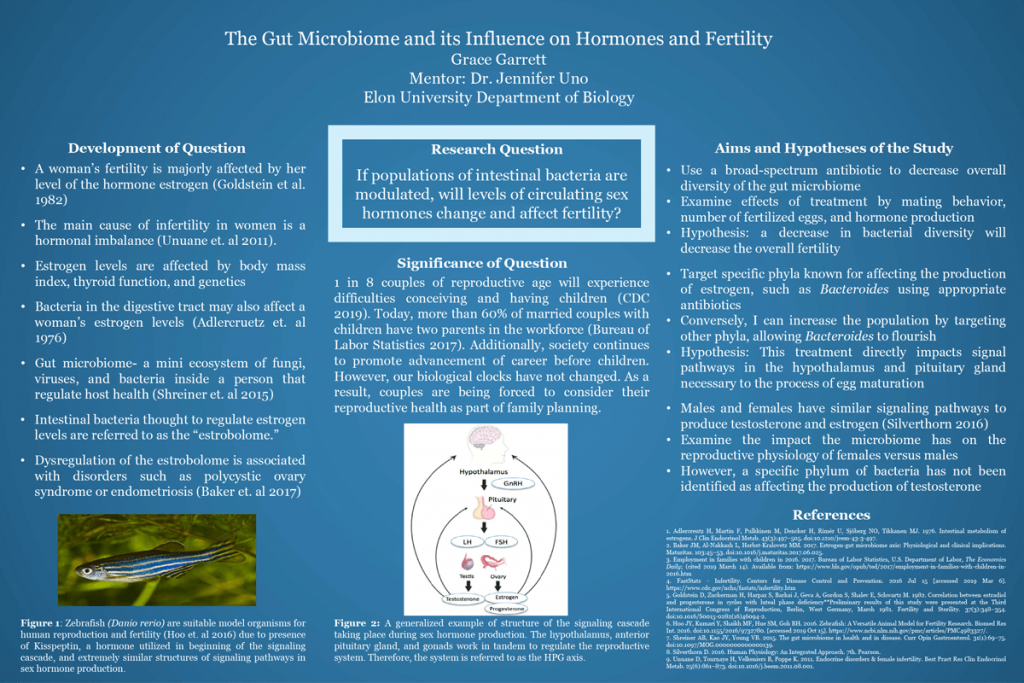Grace Garrett
Class of 2021
- Biology

The Gut Microbiome and its Influence on Hormones and Fertility in a Zebrafish Model
Project Mentor:
- Jen Uno, associate professor of biology
Project Abstract
One in eight couples of reproductive age will experience difficulties conceiving and having children. Today, more than 60% of children have two parents in the workforce, and this percentage is increasing. As more couples postpone starting a family, they are forced to consider their reproductive health as part of family planning. The most frequent cause of infertility in women is a hormonal imbalance. Recent research indicates that the composition of the gut microbiome may play a role in reproductive health and fertility. The gut microbiome is a mini ecosystem of fungi, viruses, and bacteria that relies on maintained balance of species to keep a person healthy. If the balance is lost, disease may develop. It has been evidenced bacteria in the gut are able to produce estrogen, a female sex hormone critical to ovulation. Additionally, evidence of differing gut microbial communities between individuals affected by disease compared to normal individuals has been found. However, currently there is little to no work connecting the microbiome to the hormonal imbalances associated with infertility. The aim of this study is to alter the intestinal microbiome composition and determine how these changes impact hormone production associated with fertility. It is hypothesized that by creating an imbalance in the gut microbiome, the female will have hormonal imbalances resulting in impaired fertility.
 Download Project Presentation
Download Project Presentation